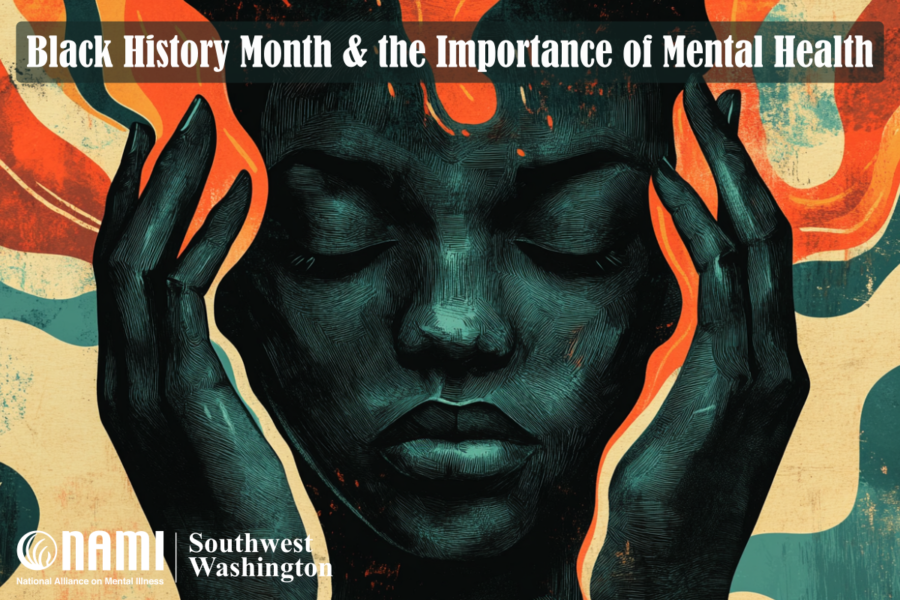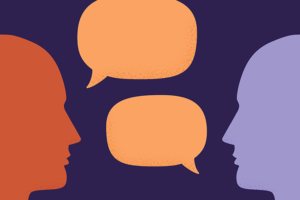Black History Month is a time for celebration, remembrance, and reflection on the countless contributions African Americans have made to the social, cultural, and political fabric of the United States. It’s also an opportunity to acknowledge the challenges that persist within Black communities, particularly concerning mental health. At NAMI Southwest Washington, we believe that honoring Black History Month includes recognizing and addressing those mental health needs.
Throughout U.S. history, Black individuals have shown remarkable resilience. From the fight for civil rights to ongoing social and political advocacy, there is a longstanding tradition of pushing against systemic barriers. However, this history of resistance and perseverance often bears a hidden cost. The legacies of slavery, segregation, and racial violence continue to affect mental health in ways both explicit and subtle. Generational trauma, racial discrimination, and mistrust of healthcare systems can create persistent stressors that contribute to conditions like depression, anxiety, and post-traumatic stress disorder.
This year’s Black History Month theme—African Americans and Labor—underscores how essential Black workers have been to the nation’s economic growth and stability. Yet labor and employment can also be key sources of emotional strain. Financial inequities, wage gaps, discrimination in the workplace, and limited advancement opportunities compound mental health challenges, particularly when individuals feel they have to work twice as hard for half the recognition or compensation. Historically, Black labor organizations have provided not just collective bargaining power, but also vital social support, offering a sense of solidarity that helps buffer against some of these stressors.
Despite these communal resources, stigma surrounding mental health remains one of the biggest barriers to seeking help. In many Black communities, cultural values emphasize fortitude and self-reliance, which can discourage open conversations about mental illness. Fear of judgment or appearing weak sometimes leads individuals to suppress emotional struggles. While this emphasis on strength is a testament to the resilience passed down through generations, it can also prevent many people from sharing their mental health challenges or reaching out to a professional. Breaking the silence is one of the most important steps we can take to encourage healing. Open discussions with family, friends, and community leaders can normalize mental health challenges and pave the way for seeking help without shame.
Advocacy and community support are crucial to overcoming these hurdles. Expanding access to mental health care through increased funding, telehealth options, and training for healthcare professionals on implicit bias can make a significant difference. Culturally competent care—including providers who understand the historical context of Black mental health—can help build trust in medical systems. Community organizations, including churches and cultural centers, often serve as comfortable entry points for those who are unsure where else to turn. These groups can offer initial support, resources, and referrals to professionals who understand the intersection of culture and mental well-being.
NAMI Southwest Washington stands committed to improving mental health equity. Through our educational programs, support groups, and advocacy work, we strive to ensure that everyone—regardless of background—has access to the care and support they deserve. This Black History Month, we honor past achievements and look toward a future where mental health is recognized as a fundamental aspect of overall well-being. By reducing stigma, expanding community resources, and advocating for policy changes, we can help create a world in which seeking help is celebrated as a sign of strength.
To learn more about our services, feel free to peruse our website, where you’ll find information about local support groups, educational programs, and ways to get involved. If you’re looking for culturally competent care, platforms like Therapy for Black Girls or Black Men Heal can help connect you to providers who specialize in meeting the unique needs of Black communities. As we celebrate Black History Month, let us continue the work of those who came before us by advocating for a future in which mental health care is accessible, equitable, and free from stigma for all.




